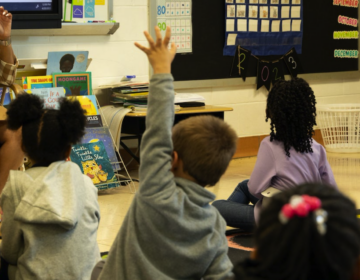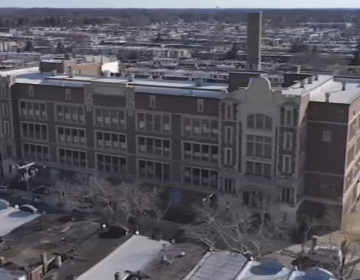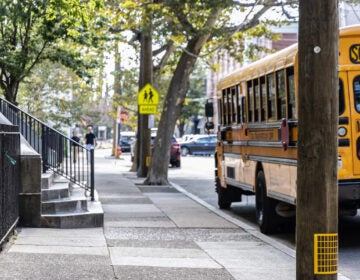5 key takeaways from Watlington’s first ‘State of the Schools’ address
In his first “State of the Schools” address, Superintendent Tony Watlington said public schools are important because they help “build the middle class.”

File: Philadelphia Superintendent Dr. Tony Watlington gave the first-ever State of Public Education address at the High School for the Creative and Performing Arts on Jan. 30, 2024. (Kimberly Paynter/WHYY)
From Philly and the Pa. suburbs to South Jersey and Delaware, what would you like WHYY News to cover? Let us know!
In his first “State of the Schools” address, Superintendent Tony Watlington said public schools are important because they help “build the middle class.”
“I hear President Joseph Biden talk all the time about the unions’ role in building the middle class,” Watlington said. “ Our teachers, principals and all the school folks help to build the world’s strongest military and the world’s largest economy.”
Improving Pa.’s largest school district
Last year, the Philadelphia School District, Pennsylvania’s largest district and the eighth largest nationwide, made progress in improving student and teacher attendance, increasing its graduation rates and reducing its dropout rate. It has about 197,000 students.
“Our job in this district is to prepare students for any future that they can realize and imagine,” Watlington said. My charge is to make sure that we do everything in our power as a staff to achieve the board’s very lofty goals and guardrails, and position our district to be the fastest-improving large urban school district in the country.”
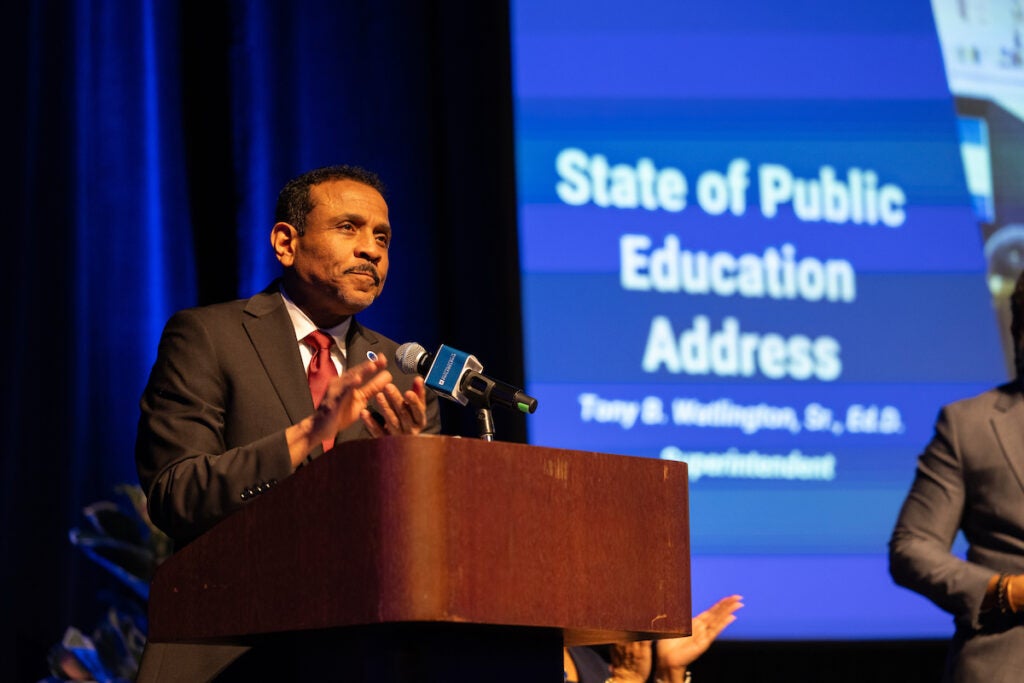
In 2022, Watlington promoted a $70 million curriculum upgrade. In July of that year, the Board of Education also approved the district’s Accelerate Philly, a five-year strategic plan focusing on safety and security, greater partnerships with school communities and improving academics.
As a result, the district is replacing analog cameras at 150 schools and hired a new security chief, Craig Johnson, who was the deputy of now-Philadelphia Police Commissioner Kevin Bethel. Currently, the district is preparing its students for the National Assessment of Educational Progress, also known as the nation’s report card.
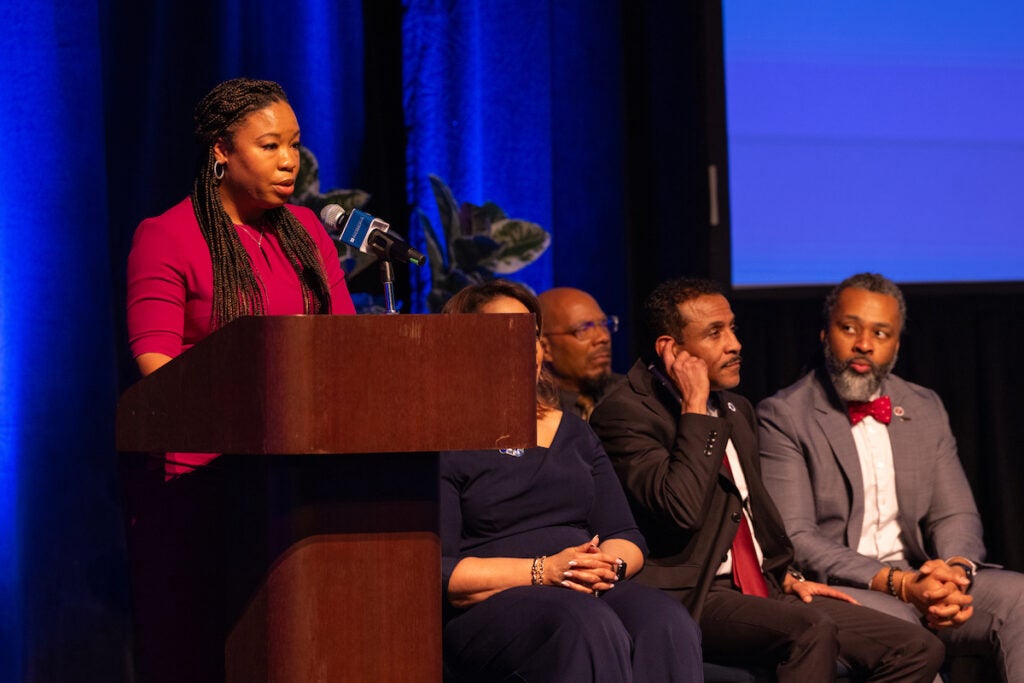
Preparing for the end of pandemic-era funding
When federal pandemic relief funds expire in September, the district’s $4.5 billion budget will lose $1.2 billion. Without any new money, the district projects a deficit of more than $400 million, Watlington said.
His address came days before Gov. Josh Shapiro’s annual budget address on Feb. 6.
In December, Pennsylvania finalized a budget championed by Shapiro. It includes $567 million in basic education funding and $175 million for improving school facilities statewide, along with funding for free breakfast for 1.7 million school students across the state.
Upgrades to school buildings and facilities
“The school facility funding is long overdue,” said Speaker of the House Johanna McClinton, D-191st District, which includes parts of West Philadelphia. “In Philadelphia, we have buildings with broken HVAC systems, leaking roofs and even contaminants in the water. This funding will help schools make repairs to buildings to ensure they are safe for students, staff and others.”
The total funding package should translate into $85.5 million for the district. She described it as a down payment on the Commonwealth Court decision ruling the state’s funding formula was unconstitutional and resulted in underfunding for some districts.
McClinton said the court’s ruling is “a mandate” that the commonwealth must do better.
“Recently, the Basic Education Commission released a report that can serve as a blueprint to ensure we adequately and equitably fund our schools in Pennsylvania,” McClinton said. That report estimated that about $5.4 billion over seven years was needed statewide to fix the years of underfunding.
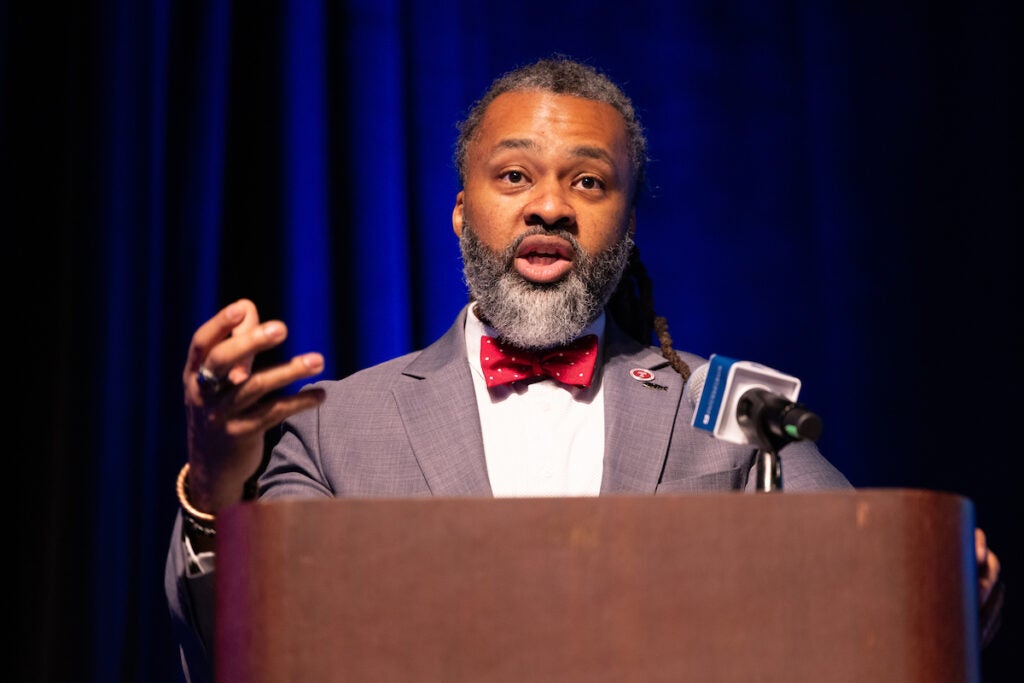
A focus on attendance
Last year, the school district increased the number of students who attend school 90% of the month from 57% to 61%. According to the district, teacher attendance also increased from 77% to 84%. For comparison, about 84% of Pennsylvania students attend school 90% of the time.
“If students attend school 90% of the month, academic performance will improve,” Watlington said. “Teacher attendance is the number one factor in whether or not students achieve academically.”
Watlington also added the district’s dropout rate decreased by 265 in 2022. According to a 2017 study by Northwestern University, high school dropouts cost taxpayers about $292,000 over their lifetimes.
“We want to improve attendance,” he said. “What we learned from the pandemic in public education is that children, irrespective of race and ethnicity, gender, socioeconomic status, the majority learn better in in-person learning.”
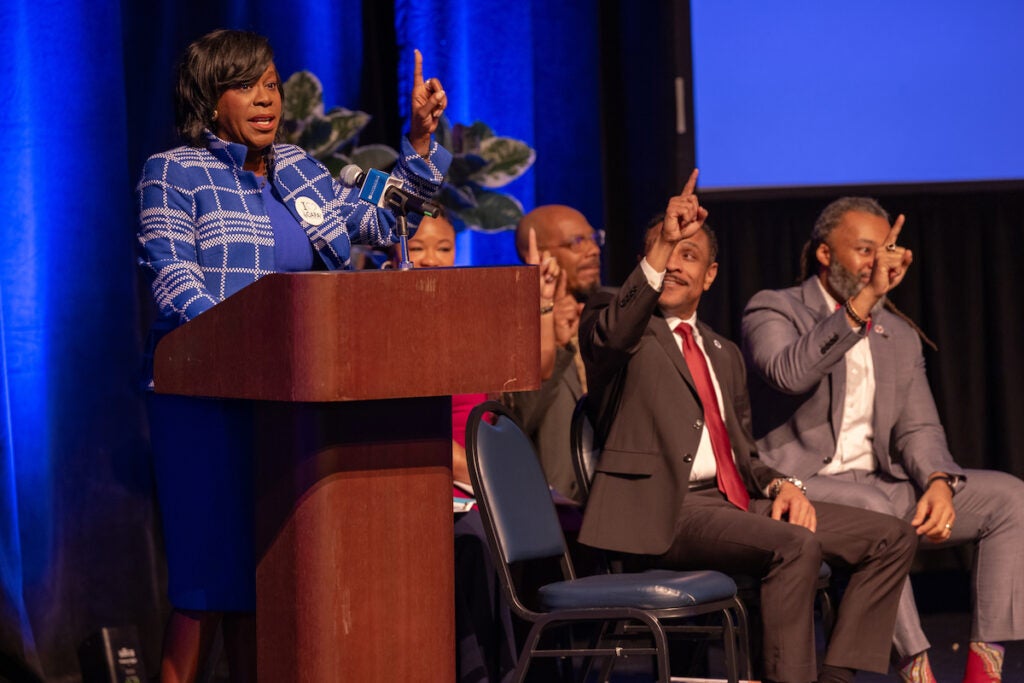
‘We are a very diverse district’
According to Watlington, the school district faces similar challenges to other large urban districts, such as schools in high-crime areas, aging facility infrastructure, and an increasing diversity of students.
Watlington said, “Our students and families speak more than 170 languages. We are a very diverse district.”
“It’s not just about the test scores, the test scores and increasing them is a means to an end in the city of Philadelphia, so that we can ensure that our children have an opportunity to participate in the world’s largest economy,” he said. “Many fantastic students have come out of this school district.”
He cited a list of district alums that went on to success, including several graduates of CAPA, where his speech was held, such as R&B singers Boyz II Men, Jazmine Sullivan, Questlove and Black Thought, members of the Roots. But he also mentioned Attorney Gloria Allred, a Girl’s High School graduate; Guion Bluford, NASA’s first Black astronaut and entertainer Will Smith, both Overbook grads.
“It just reminds you of the talent that is all over this city,” he said.
In 2022, Watlington promoted a $70 million curriculum upgrade. In July of that year, the Board of Education also approved the district’s Accelerate Philly. This five-year strategic plan focuses on things like safety and security, greater partnerships with parents and communities and improving academics.
WHYY News’ Amanda Fitzpatrick contributed reporting.

Get daily updates from WHYY News!
WHYY is your source for fact-based, in-depth journalism and information. As a nonprofit organization, we rely on financial support from readers like you. Please give today.


